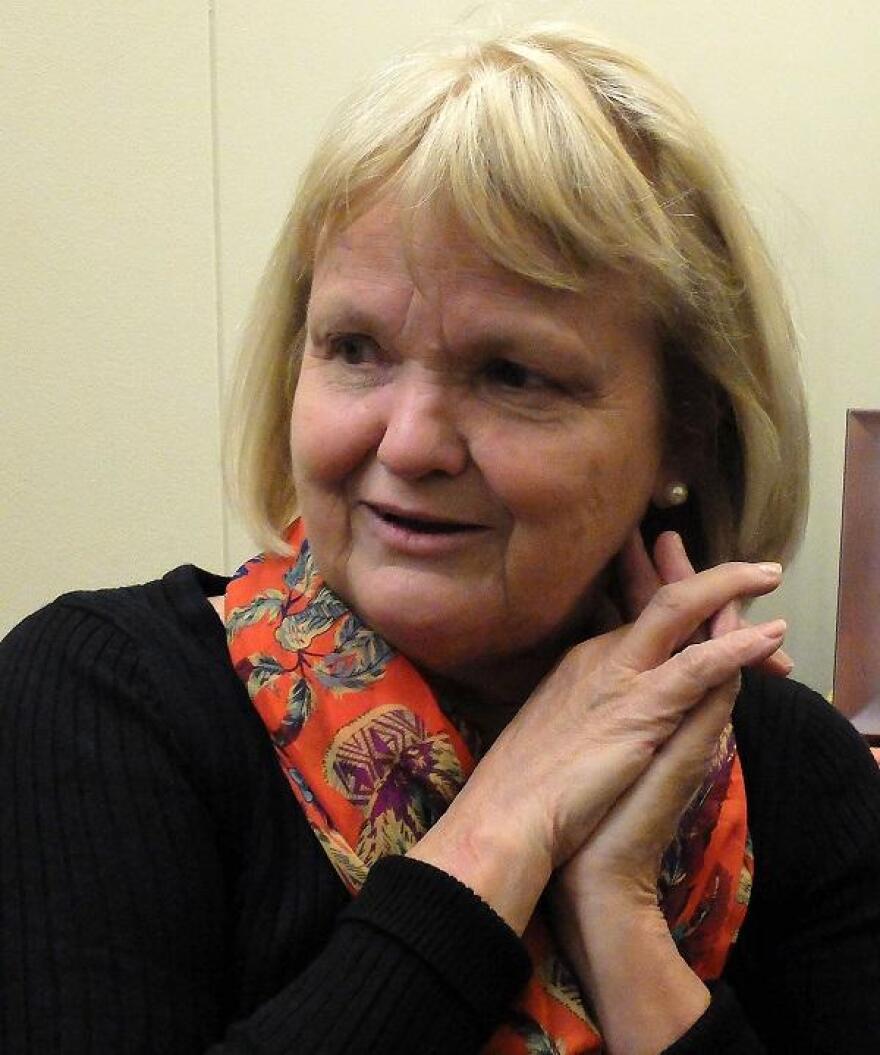It's hard to imagine a worse disease than amyotrophic lateral sclerosis, or ALS. The muscle-wasting affliction strikes about 5,600 patients each year. Thirty thousand people are living with it in the United States. The vast majority of those cases are not inherited.
But for families that do carry the gene, it is especially heartbreaking. One of those families lives in Vermont, and they are helping to advance medical research.
Susan Lynaugh of North Danville has watched so many people she loved die slow, lingering deaths that she sometimes dreads picking up the telephone.
"ALS. You don’t want to hear that,” Lynaugh says. She shows a picture of her late brother, Clif, in the family photo gallery she keeps on her iPad.
Lynaugh, who trains remedial reading teachers, has heard those awful letters — ALS — over and over again. The first known case in her family was Erastus Farr, a farmer from Sutton, who died of ALS in 1835. Since then the hereditary strain has cut short the lives of Lynaugh's distant relatives in other states and very close ones here in Vermont.
Her mother died in 1963. She's lost her aunt, sister, brother and nephew — he was only 27. ALS causes the motor neurons of the brain and spinal cord to malfunction gradually until all movement stops.
“The worst thing that can happen is that you are trapped in your own body. You can think, and you are quite aware of what’s going on around you but you can’t even move. You know, just practice sometime sitting there thinking, ‘I can’t even move my little finger, I can’t even blink,’” Lynaugh says.
Life becomes miserable. Death is inevitable. But in the meantime, the Farr family and their many friends have learned how to care deeply for each other and make the most of the years — or maybe just months — that remain after the dreaded diagnosis. Lynaugh says ALS has posed deep questions for everyone it has touched.

“What is living and what is dying?” she asks. For some, she explains, a quick death seems merciful. Others are determined to squeeze every minute out of the life they have left and prolong it if possible.
“So our family is pretty good at both of those things," she says. "We’re good at living and we’re good at dying, unfortunately.”
With support from her close-knit community of North Danville, Lynaugh has worked through her grief to become the unofficial family activist, building bridges to researchers at Massachusetts General Hospital and Dartmouth-Hitchcock Medical Center. The Farr family helps doctors by keeping meticulous medical records, joining clinical trials for promising new drugs, donating DNA and body tissue, being tested for the genetic mutation and being interviewed for a new book by Northeast Kingdom historian Dan Swainbank.
It's called The Farr Disease: One Family’s 150-Year Battle With ALS. Swainbank says the family has maintained a strong spirit as it persevered with ALS.

“As I say in the book, hope seems to be the best drug they've found so far to deal with the disease," Swainbank says.
And at least one researcher who has worked with the Farrs says there is reason to hope that gene therapy could lead to a cure for the next generation.
But unlocking the secret of ALS is one thing; getting new drugs to market is another. It’s sometimes called an “orphan disease” because it doesn't get as much media and medical attention as more common afflictions that affect more people receive.
"Hope seems to be the best drug they [the Farrs] have found so far to deal with the disease." - Author Dan Swainbank
Susan Lynaugh fears ALS drugs would not be needed by enough patients to generate enough profits for a large pharmaceutical manufacturer. Still, she says, her family will continue to participate in clinical trials, even if they present health risks.
“The benefits far outweigh the risks in our 150 years of having this. We know what the other option is. And the other option is death,” she says simply.
Lynaugh has been tested for the disease and prefers to keep those results to herself. Others in her large family have decided to have the test but not learn the results, so that their lives are not ruined by fear. Still others don’t want to be tested, and live each day as fully as they can.






